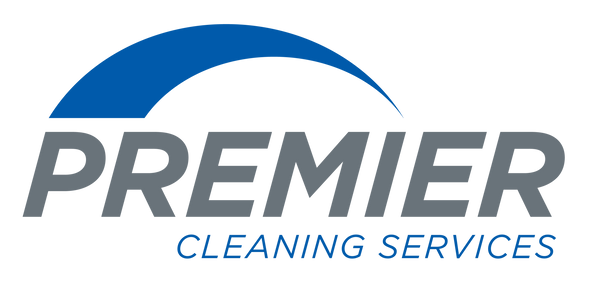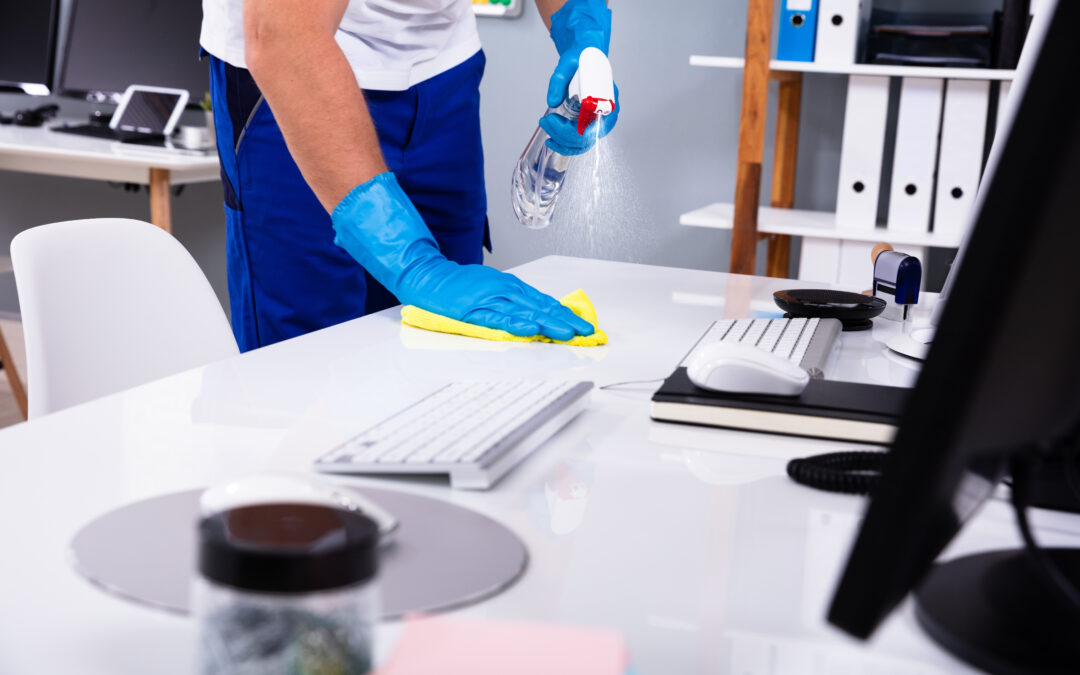Introduction
In today’s complex and highly regulated business landscape, compliance is a critical aspect of operations in various industries. From healthcare and food service to manufacturing and pharmaceuticals, businesses must adhere to a multitude of regulations designed to ensure safety, quality, and environmental responsibility. One often-overlooked but crucial aspect of compliance is cleaning and hygiene. In this blog post, we will explore the importance of cleaning for compliance and provide insights into how businesses can meet industry-specific regulations while maintaining a clean and safe environment.
Understanding the Significance of Compliance
Compliance refers to the act of adhering to laws, regulations, standards, and guidelines set by government bodies, industry associations, or other relevant authorities. These rules are established to safeguard consumers, employees, and the environment, as well as to ensure the quality and integrity of products and services.
Failure to comply with industry-specific regulations can lead to a range of consequences, including fines, legal action, reputational damage, and, in some cases, the closure of the business. Therefore, achieving and maintaining compliance is not just a legal requirement; it is a fundamental responsibility for any organization.
The Role of Cleaning in Compliance
While compliance encompasses various aspects, such as data security, financial transparency, and workplace safety, cleaning plays a crucial role in ensuring compliance in many industries. Proper cleaning and hygiene practices are vital for the following reasons:
Preventing Contamination
In industries like food service and pharmaceuticals, contamination is a significant concern. Failure to maintain a clean environment can lead to contamination of products, which can have severe health and safety implications. Compliance regulations often dictate specific cleanliness standards to prevent contamination and ensure product integrity.
Protecting Employee Health
Worker safety is a top priority in many industries. In manufacturing and construction, for example, employees may be exposed to hazardous substances and environments. Regular and thorough cleaning can reduce the risk of workplace accidents, injuries, and occupational illnesses, helping businesses comply with health and safety regulations.
Ensuring Product Quality
In manufacturing and production industries, cleanliness is directly linked to product quality. Dust, debris, or contaminants can lead to defects, product recalls, and customer dissatisfaction. Compliance with quality standards often involves maintaining a clean and controlled manufacturing environment.
Meeting Environmental Regulations
Environmental regulations are becoming increasingly stringent across industries. Businesses are required to minimize their environmental impact by controlling emissions, conserving resources, and disposing of waste responsibly. Proper cleaning practices can help reduce a company’s environmental footprint, thus ensuring compliance with environmental regulations. For more information on how to make your business’s cleaning practices more eco-friendly, visit our blog post on the subject.
Industry-Specific Cleaning Compliance
Each industry has its unique set of regulations and standards that pertain to cleaning and hygiene. Here, we’ll delve into some specific industries and their cleaning compliance requirements:
Healthcare
In healthcare, cleanliness is paramount. Hospitals, clinics, and other healthcare facilities must adhere to strict cleaning and disinfection protocols to prevent the spread of infections. Compliance with regulations such as those outlined by the Centers for Disease Control and Prevention (CDC) and the Occupational Safety and Health Administration (OSHA) is essential. Cleaning for compliance in healthcare involves:
Proper disinfection: High-touch surfaces, patient rooms, and medical equipment must be thoroughly disinfected to prevent healthcare-associated infections (HAIs).
Waste disposal: Proper disposal of medical waste is crucial for both patient and environmental safety.
Infection control: Implementing infection control measures and providing training for staff on cleaning protocols is essential.
Food Service
Restaurants, cafes, and food processing facilities must adhere to stringent hygiene standards to ensure food safety. Compliance with regulations from the Food and Drug Administration (FDA) and the U.S. Department of Agriculture (USDA) is vital. Cleaning for compliance in food service involves:
Sanitization: Thorough cleaning and sanitization of food preparation surfaces, utensils, and equipment to prevent foodborne illnesses.
Pest control: Implementing measures to prevent and control pests, which can lead to contamination.
Record-keeping: Maintaining records of cleaning and sanitization activities to demonstrate compliance during inspections.
Manufacturing
Industrial and manufacturing facilities face diverse compliance requirements, depending on the type of products they produce. Compliance may involve adhering to Good Manufacturing Practices (GMPs) or specific industry standards. Cleaning for compliance in manufacturing involves:
Cleanroom management: Maintaining controlled environments to prevent contamination in industries such as electronics, pharmaceuticals, and aerospace.
Equipment cleanliness: Ensuring machinery and equipment are cleaned and maintained to prevent defects and ensure product quality.
Hazardous waste disposal: Proper disposal of hazardous materials and waste in compliance with environmental regulations.
Pharmaceuticals
The pharmaceutical industry is highly regulated to ensure the safety and efficacy of medications. Compliance with regulations from agencies like the Food and Drug Administration (FDA) is critical. Cleaning for compliance in pharmaceuticals involves:
Cleanroom standards: Adhering to strict cleanroom classifications and protocols to prevent contamination during drug manufacturing.
Equipment validation: Ensuring that equipment used in drug production is properly cleaned and validated to prevent cross-contamination.
Documentation: Maintaining detailed cleaning records and documentation to demonstrate compliance during audits.
Agriculture
In the agricultural sector, compliance with environmental regulations and sustainable farming practices is essential. Cleaning for compliance in agriculture involves:
Pesticide and herbicide use: Following regulations for the safe application and disposal of agricultural chemicals.
Soil and water conservation: Implementing practices to reduce soil erosion and water pollution.
Livestock hygiene: Ensuring the cleanliness and well-being of animals in compliance with animal welfare standards.
Best Practices for Cleaning Compliance
Meeting industry-specific cleaning compliance requirements requires a systematic approach. Here are some best practices that can help businesses ensure compliance:
Conduct Regular Audits and Inspections
Regular audits and inspections help identify areas where cleaning compliance may be lacking. By conducting internal audits or hiring third-party inspectors, businesses can proactively address issues and make necessary improvements.
Train Staff Effectively
Properly trained staff are essential for maintaining cleaning compliance. Ensure that employees understand the cleaning protocols specific to your industry and have access to the necessary training resources.
Document Cleaning Activities
Maintain detailed records of cleaning activities, including dates, times, methods, and responsible personnel. This documentation is invaluable during inspections and audits, demonstrating your commitment to compliance.
Invest in Quality Cleaning Equipment and Supplies
High-quality cleaning equipment and supplies can make a significant difference in achieving cleanliness and compliance. Ensure that your cleaning tools meet industry standards and are regularly maintained.
Stay Informed About Regulatory Changes
Regulations and standards can change over time. Stay informed about updates and revisions to ensure ongoing compliance. Join industry associations and subscribe to relevant newsletters and publications for updates.
Embrace Technology
Leverage technology for cleaning compliance. Use digital tools for record-keeping, compliance tracking, and scheduling routine cleaning tasks.
Hire a Professional Cleaning Company
If hiring and training your own cleaners seems daunting or unrealistic for your business situation, consider outsourcing your cleaning needs to a commercial cleaning service. Professional cleaners are trained on current cleaning regulations for all kinds of industries. They work with you to build a cleaning plan that works for you and your business.
Conclusion
Cleaning for compliance is a multifaceted challenge that varies significantly across industries. However, one common thread is the critical role that cleanliness and hygiene play in ensuring the safety, quality, and regulatory compliance of products and services. Businesses that prioritize and invest in cleaning for compliance not only protect their reputation but also contribute to the well-being of their customers, employees, and the environment.
To succeed in today’s competitive and regulated landscape, organizations must view cleaning as an integral part of their compliance strategy. By understanding industry-specific regulations, implementing best practices, and staying proactive, businesses can maintain a clean, safe, and compliant environment while thriving in their respective industries. Compliance is not just a legal obligation; it’s a commitment to excellence and responsibility that should be at the heart of every organization’s operations.
Interested in building a lasting business relationship? Visit Premier Cleaning Services to request a free estimate today.

